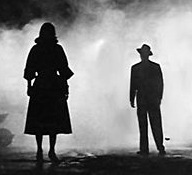Be Curious: The Leadership Art of Good Questions

Dr. Denis Pym, Organizational Behaviour Professor at the London Business School, told us eager faced MBA candidates what a great question this was for engaging conversations.
“I’ve come to hate cocktail parties, donors and academics standing around drinking plonk white wine, eating Jarlsberg, and talking about banalities. This question gets you away from the dreadful ‘What do you do?’ If people quibble about the word ‘obsession,’ I move on, because talking with dispassionate people is painfully boring. But this question sparks some really interesting conversations. You get to know people”
Denis was a bit eccentric, to say the least. He expounded on “labour in the post-industrial economy,” lived on a Kent farm and told us how he asked corporations to pay him for his consulting in sheep. But he was onto something. Get people to talk about what they are passionately interested in, you’ll be amazed at how you’ll connect with them.
For about five years I conducted a leadership workshop for mid-level leaders at an international oil and gas company. The workshop was called “training,’ and we did share some content, but the workshop’s real purpose is to engage this group of leaders in solving the problems facing the corporation. Mid-level managers touch more people than anyone and they are often purposefully disengaged from change because their job is to make today’s work happen. They sometimes feel change happens to them, but for change to happen they must lead it.
One of the things I share with such groups is that “leadership is about good questions.” Management is about getting today’s work done; Leadership is about change. The key accountability of a leader is to attract followers. Yes, yes, vision is important, because who would follow you if they didn’t have a clear and emotionally charged picture of the future, but the act of following is a choice. People choose to follow because you make them feel part of something. People are more likely to feel part of something if they are talking not you. How do you get people to talk? Ask them a question.
I’m not talking about the standard managerial question: “Have you considered the impact on this quarter’s contribution margin?” Managers, as said, have accountability for today’s work performance. Sometimes they have to ask more and more detailed questions to test the thoroughness of the work. Sometimes they play “Gotcha” with subordinates to avoid slipshod thinking. Some managers get far too much enjoyment from this kind of question.
Nor am I talking about the “I’m so smart” question: “Clearly you have built upon the work of Dr. Deming in the design of the customer feedback system, but have you considered the work of Argyris and Schon on double loop learning to avoid the trap of coloring feedback by the means used to collect it?”
Nor am I talking about the “I’m an executive and you’re not:” “Do you mean to tell me. . . ?”
No, I’m talking about questions that truly engage the questioned, that open a real dialogue, from, which you learn something. These are questions about which you are genuinely curious about what the other person has to say.
First, some questioning basics:
• Open-ended questions begin with What, How, When, Where, Tell me about. They let the answerer talk.
• Closed ended questions begin with Do, Did, Will, Have, Is, Should. These questions can be answered yes or no or with very short answers. They are used to clarify and summarize. When overused the dialogue feels like an interrogation or worse falls flat.
I think everyone knows this distinction conceptually, but sometimes I find myself asking closed-ended questions unintentionally and the result is somewhat like the Saturday Night Live sketch with the late Chris Farley interviewing Paul McCartney:
“Do you remember when you were in the Beatles?”
“Yes, I do.”
(long uncomfortable pause)
“That was awesome!”
Clearly, if we want people to talk, we need to ask an open-ended question, and one they can answer, “Tell me about your job. What are the critical elements?” “What’s working well today?”
In1985, in “A Passion for Excellence” Tom Peters and Nancy Austin introduced the phrase MBWA (Management by Walking Around.) Even they called it a “Blinding Flash of the Obvious.” The premise was that leaders should get out of their offices, talk to customers, suppliers and their people. Good managers have always done this. It seems everyone “knows it’s a good idea,” but it also seems in these days of the email-instant messaging–social media tsunami it seems to be tougher and tougher to do.
When you are out walking around, what questions do you ask? That depends on your purpose.
Some purposes of leadership questions:
• “Getting to know you” questions: These are questions about individuals. They demonstrate that you are interested in others as people. “Where do you come from?” “How long have you worked here?” “Tell me a little about yourself?” “What do you do outside of work”
• Questions about the work. “What’s going on today?” “What’s working?” “What do you wish was working better?”
• Questions to find success stories: “What are you most proud of?” “What around here do you want to make sure we don’t change?”
• Questions to surface work problems or risks? When making a change, you might test understanding of why we are changing, or check on progress, or surface problems or things that are getting in the way.
"
Articles from Alan Culler
View blog
Image: Construction of the Steve Jobs Theater, Apple "Mothership," new headquarters Cupertino, Calif ...

“‘I need your help,’ the blond whispered in my ear as she took me by the arm and started fast-walkin ...

“But we just redid our comp ratios.” · “Look, I don’t care when you did them, I’m telling you your c ...
You may be interested in these jobs
-
Dietary Aide
Found in: One Red Cent US C2 - 2 days ago
Pinnacle Living Roanoke, United StatesJOB SUMMARY: · Dietary Aides are assigned to the dining rooms in Health Services. They provide all aspects of service to the residents. Dietary Aides plate food, check quality, and temperatures before service according to the resident's selection. Provides snacks and nourishments ...
-

Engineering Assistant/Project Controller
Found in: Betterteam US S2 T2 - 2 weeks ago
The Dyer Partnership Engineers & Planners, Inc. Coos Bay, United States Full timeEngineering Assistant/Project Controller · The Dyer Partnership is looking for an experienced Engineering Assistant/Project Controller to join our Coos Bay office. Preferred applicants would have consulting experience with municipal civil engineering design, bidding, and construc ...
-
Indirect Tax Manager
Found in: Lensa US 4 C2 - 2 days ago
JELD-WEN Charlotte, United StatesJELD-WEN is currently seeking a Indirect Tax Manager to join our growing team. · The Opportunity · As the Indirect Tax Manager, you will provide direction and leadership to the indirect tax function, safeguard compliance with regulations, and develop and execute tax strategies. ...

Comments